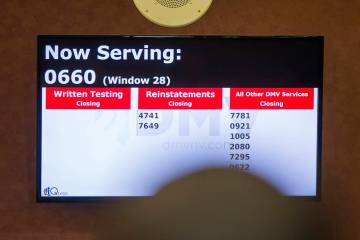EDITORIAL: Taxpayers deserve full accounting of public funds used to pay off harassment settlements
Few topics have dominated the headlines lately like sexual misconduct and harassment. From pro athletes to actors to politicians, it’s becoming increasingly difficult to keep up with who is accused of doing what.
While some public figures have publicly admitted to — and apologized for — their misdeeds, others have done everything they could to cover them up. And perhaps nowhere else is this practice more prevalent than in the halls of Congress.
As Buzzfeed reported last week, the office of Rep. John Conyers, D-Mich., the longest-serving member of the House of Representatives, paid $27,000 to settle a previously undisclosed sexual harassment complaint.
The complaint was made by a former employee who alleged she was fired because she refused to “succumb to [his] sexual advances.” While Rep. Conyers confirmed the settlement hours after the story broke, he “vehemently denied” the claims against him. As reason.com notes, the Conyers case shines a light on the murky and suspicious process the House employs to pay off accusers and keep their accusations under wraps.
After the allegations against Harvey Weinstein started the deluge, Rep. Jackie Speier, D-Calif., told MSNBC that the House had doled millions of dollars over the past decade to settle sexual harassment claims.
In response to pressure from the public, the Office of Compliance, which Reason aptly describes as the House’s “rough simulacrum of a human resources department,” released documents showing that it had paid out $17 million over the past two decades to settle myriad workplace claims, including sexual harassment. The details of each settlement, including its nature, are confidential, and claimants must sign a nondisclosure agreement in order to launch the lengthy mediation process, Reason reports.
The House’s process for settling claims is both secretive and convoluted. As Reason explains, most regular cases settled by the federal government are handled by the Treasury Department’s Judgment Fund, which has an online, searchable database of payouts organized by agency and date. House settlements, however, are absent from that database.
According to the Congressional Accountability Act, House settlements — the details of which are kept strictly confidential — are paid from a special Treasury fund that the Office of Compliance draws from as need. As Buzzfeed notes, however, Rep. Conyers’ case didn’t even go that route.
As the site explains, one of his former employees was offered a settlement in exchange for her silence, to be paid out of Rep. Conyers’ regular, taxpayer-funded operating budget. The office would “rehire” her as a “temporary employee,” despite the fact that she was not required to show up or do any work. Once she received her total payout after three months, she would be removed from the payroll.
If all this sounds like a hush payout, that’s because it was.
Due to her nondisclosure agreement, Reason notes, as well as the use of standard office payroll to hide the payout, there was virtually no way for the public to know that it was supplying Rep. Conyers with hush money.
Both former House Speaker John Boehner and current House Minority Leader Rep. Nancy Pelosi, D-Calif., claim they had no idea about Rep. Conyers’ payments. And why would they know? As Reason notes, Congress “created a perfect black box of secrecy, designed to shield its members from scrutiny, give senior leadership plausible deniability and avoid any of the regular reporting that other federal settlements are subject to.”
This is outrageous, although not surprising. If members of Congress are going to use taxpayer money to fund a slush fund to cover sexual harassment and other lawsuits, the taxpayers deserve a full accounting — and fast.




























